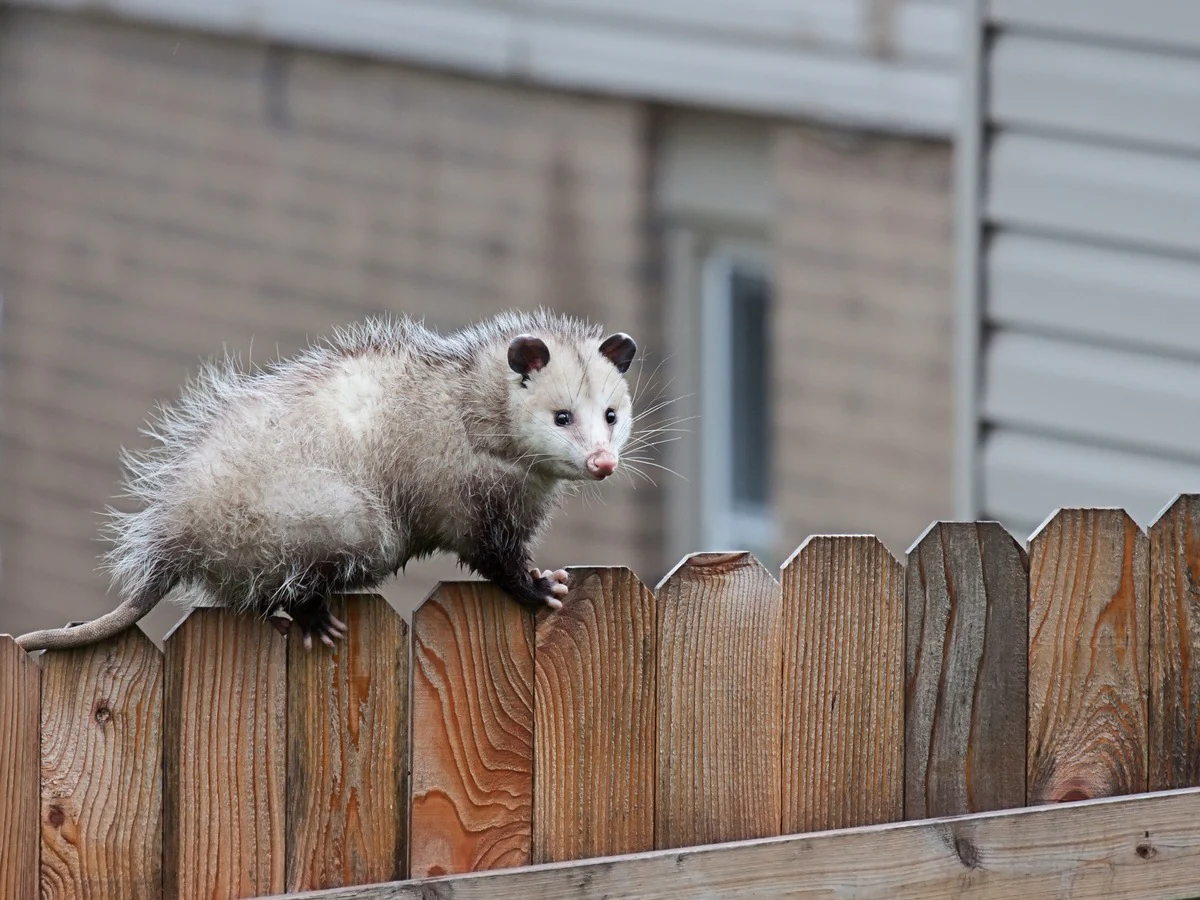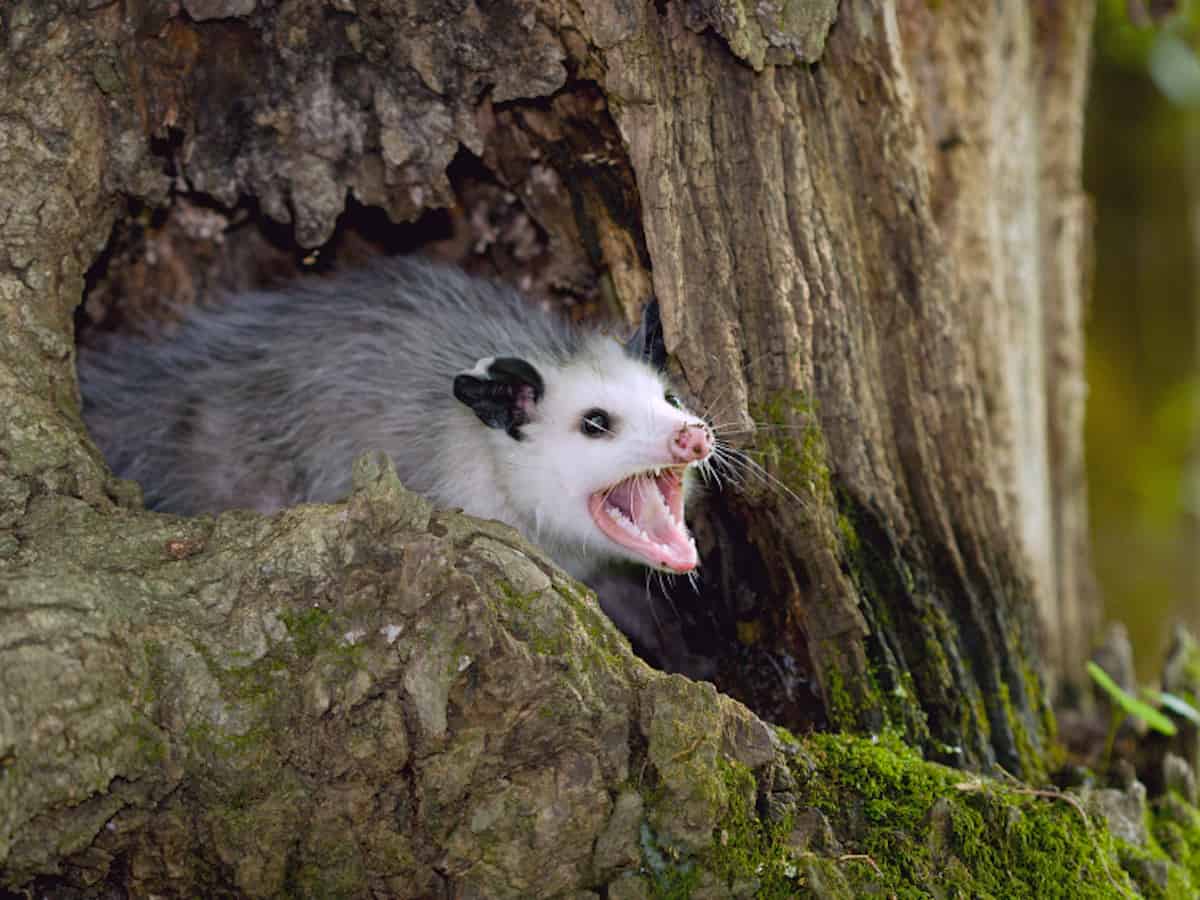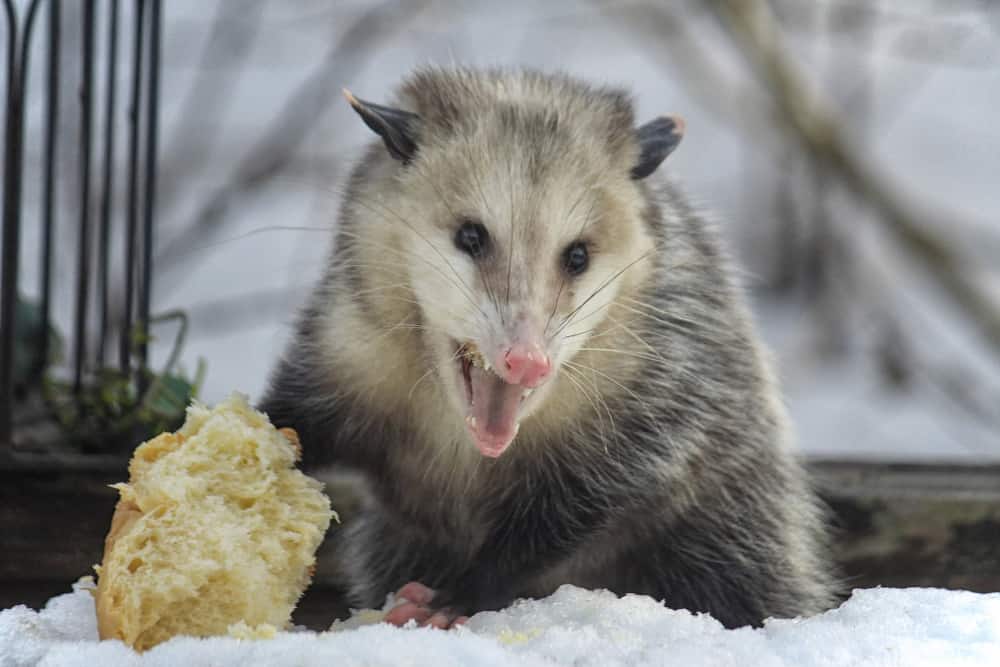Possums are one of the most common pests in the United States. They are also one of the most difficult to get rid of.
If you have possums (or, technically, “opossums” in North America) in your yard, they can be a nuisance and a danger to your pets as well as your kids. Possums are known to carry diseases such as rabies and tularemia, and they can also transmit coccidiosis and leptospirosis to humans. In addition, possums can destroy property by digging through trash cans, raiding chicken coops, chewing on fences, and more.
However, if you’re dealing with a possum problem, don’t worry. There are actually several things you can do to get rid of them for good. In this blog post, we’ll discuss what a possum is and some of the best precautions you can take in order to keep them away in the first place, as well as some of the top ways to get rid of a possum if it does happen to find its way into your space.
Are you ready to solve the problem? Then read on for more information!
What is a Possum?
First, let’s take a look at what a possum even is.
Possums (which are actually mistaken for opossums in North America) are marsupials, which means they are in the same classification of animals as kangaroos, koalas, and wombats. The way you can tell a marsupial from other classifications of animals is that the females usually have a pouch on their abdomen in order to carry their young and in which to feed them.
As we briefly mentioned, opossums are native to North America. They are usually gray or white in color, sort of resemble a cat or other small household furry animal from a distance, and have sharp teeth, long tails, black beady eyes, and long snouts. They can grow up to two feet to forty inches in length and they weigh as little as four pounds and up to about twelve pounds.
Possums are omnivores, so they feed on a wide variety of foods. These foods can include fruits, vegetables, eggs, carrion, insects, and even small mammals. They generally stay active at night and spend their days in burrows or hollow trees, which means they are referred to as nocturnal.
Possums are typically solitary animals but may live in groups of several possums, especially in an infestation situation.
When possums feel threatened they engage in a behavior known as “playing possum”, where they pretend to be dead in order to avoid conflict. This deceiving tactic is used to deter predators (who do not prefer to eat carcasses that are already dead), and it is a normal response for possums that they actually cannot control (it is involuntary).
Why Do You Want to Get Rid of Possums?
While possums may appear to be cute and cuddly in photographs on the internet, they are actually not and can sometimes be a serious threat to you, your kids, your pets, and your property. Yes, they do gather up garbage and eat insects, which is helpful, but if they are in your yard, basement, attic, under your porch, or in your garden, then they can potentially deliver more harm than good.
That they are actually quite dangerous creatures to have around your place, here are a couple of reasons:
1. They Can Cause Serious Property Damage

For their size, possums can cause quite a lot of serious property damage. They may chew on your fences and other structures such as lattices. They might dig through your trash cans to find leftover food to eat. They often will even raid your chicken coops if you have them, in order to get to the eggs.
Another thing possums like to do is dig holes in your lawn in order to make a den for themselves. This can cause major disruption to the landscape of your yard or within your home garden, both of which can take a long time to fix, depending on how many of them there are and how deep they dig.
Related to that, sometimes they will even be destructive within your home by tearing away insulation from attics and vents. They like to create debris piles with their digging activities, too, unfortunately, so they are known to make quite a mess, especially if it’s in an area of your home, like your attic, in a crawl space, or under your back porch.
2. They Can Transmit Diseases
Possums are also known to carry terrible diseases like rabies and tularemia, which can be passed onto humans or their pets through contact with possum saliva, blood, or feces. Rabies is a serious disease not to be messed with, and it can be fatal if not treated immediately by a doctor, and tularemia is a nasty disease that can cause fever, chills, and even pneumonia.
Possums can also transmit other serious conditions such as coccidiosis, leptospirosis, and toxoplasmosis to humans. Coccidiosis is a type of parasite that can cause abdominal pain, vomiting, and diarrhea, while leptospirosis is a bacterial infection that can lead to kidney failure and even death. And toxoplasmosis is an infection caused by a parasite that can lead to severe respiratory and neurological problems.
Not to mention, they can also pass on ticks, mites, fleas, and more, which bring their own sets of problems and diseases to you or your pets. Ticks can transmit Lyme disease to humans, which can have serious health implications for people if left untreated. Possums are also known carriers of mange mites, which can cause severe skin irritation in humans and patchy fur loss for pets who come into contact with them.
Obviously, these are all awful and sometimes scary diseases or conditions that you definitely do not want to come anywhere near your home or property, so that you can keep yourself, your kids, and your beloved pets safe.
Best Precautions to Take to Keep Possums Away
Now that you know what a possum is and all of the damage it can potentially cause you and your property, you may be wondering how to keep one away from your place of residency. Don’t worry – there are many precautions you can take!
- To begin with, make sure all your trash cans are securely locked and sealed so possums won’t be tempted by any food sources. Just like raccoons, they love those leftovers!
- Additionally, you should remove any potential nesting spots such as brush piles or debris near the house and clean up any pet food that has been left outside.
Following these tips will greatly reduce the reasons a possum may wander into your yard in the first place.
How To Get Rid of a Possum

But let’s say a possum gets into your yard or property regardless of the precautions you took proactively. Then what should you do?
There are a few different tactics that all work well to get rid of a possum. Let’s look at them:
1. Use Repellents
Using repellents such as predator urine or ammonia can help keep possums away from areas where they shouldn’t be. You may even want to try sprinkling some liquid hot sauce around the perimeter of your garden or try placing mothballs in attics and other enclosed spaces where possums like to hide out during the day. Even motion-activated sprinklers can also help scare possums away when the devices are triggered by the animal’s presence.
2. Trap Them
Another really effective way to get rid of possums is by trapping them. This can be done with a cage or live trap baited with pet food or other tasty treats. Once the possum has been trapped, it should be taken away from your property and released far away from any buildings or homes. That way, it cannot hurt or bother anyone anytime soon.
3. Call a Professional
If all else fails and you still have possum problems on your property, it may be time to call in the professionals for possum removal services. A pest control company will use traps and cage devices, as well as other tactics when needed, to capture the possum before releasing it back into its natural habitat far from your home or property.
Conclusion
Possums (or opossums) can cause a lot of trouble and mess when they invade your property or home, so it’s important to take the necessary steps to keep them away. Try using repellents such as predator urine or ammonia, trapping possums with a cage or live trap, or calling in professional possum removal services if needed. Taking these precautions will help keep possums far away from your family and belongings, keeping everything clean and everyone safe.
If you ever see possums on your property or near your home, make sure to take action right away to protect yourself and your loved ones from any potential harm. Don’t wait until it’s too late to act. You’ll be glad you prevented more issues from acting immediately.
Have you ever had possum problems? Let us know about it in the comments below!
